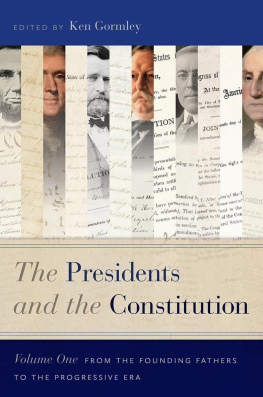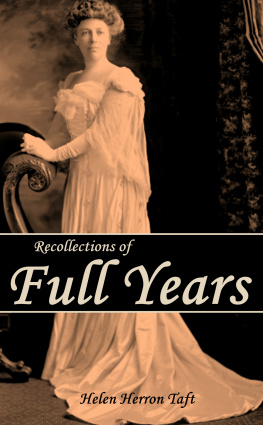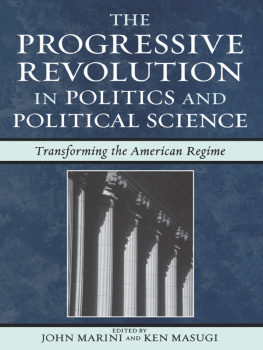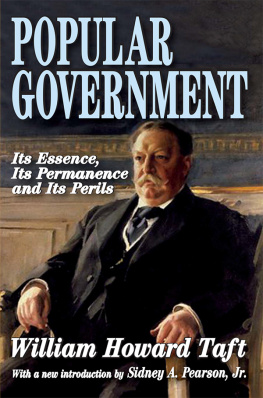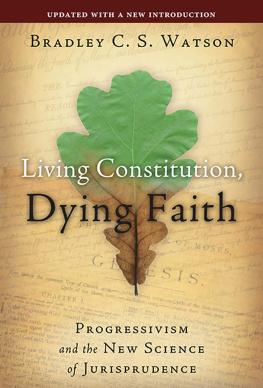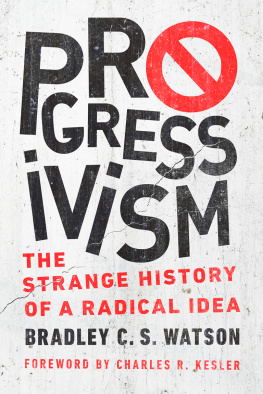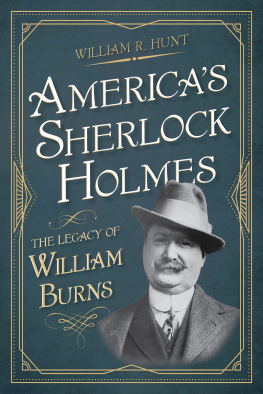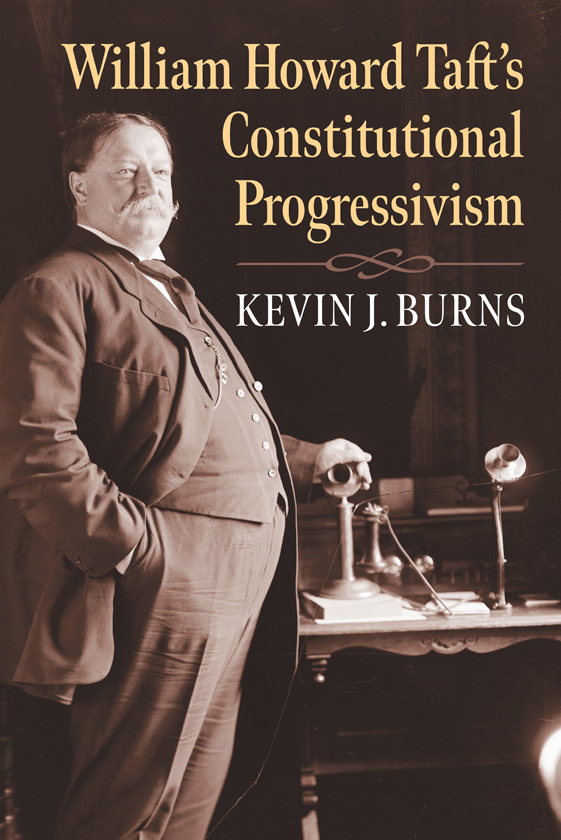Contents
William Howard Tafts
Constitutional Progressivism
AMERICAN POLITICAL THOUGHT
Jeremy D. Bailey and Susan McWilliams Barndt
Series Editors
Wilson Carey McWilliams and Lance Banning
Founding Editors
William Howard Taft's
Constitutional
Progressivism
Kevin J. Burns
 University Press of Kansas
University Press of Kansas
2021 by the University Press of Kansas
All rights reserved
Published by the University Press of Kansas (Lawrence, Kansas 66045 ), which was organized by the Kansas Board of Regents and is operated and funded by Emporia State University, Fort Hays State University, Kansas State University, Pittsburg State University, the University of Kansas, and Wichita State University.
Library of Congress Cataloging-in-Publication Data
Names: Burns, Kevin (College teacher), author.
Title: William Howard Tafts constitutional progressivism / Kevin J. Burns.
Description: Lawrence : University Press of Kansas, 2021 | Series: American political thought | Includes bibliographical references and index.
Identifiers: LCCN 2020042478
ISBN 9780700632114 (cloth)
ISBN 9780700632121 (epub)
Subjects: LCSH: Taft, William H. (William Howard), 18571930. | JudgesUnited StatesBiography. | PresidentsUnited StatesBiography.
Classification: LCC KF8745.T27 B87 2021 | DDC 973.91/2092dc23
LC record available at https://lccn.loc.gov/2020042478 .
British Library Cataloguing-in-Publication Data is available.
Printed in the United States of America
10987654321
The paper used the print publication is recycled and contains 30 percent postconsumer waste. It is acid free and meets the minimum requirements of the American National Standard for Permanence of Paper for Printed Library Materials Z 39.48 1992 .
To David K. Nichols
Study the Constitution of the United States and see what the greatest instrument of fundamental law was and is, and how simple; how it has been elastic and has yielded to the demands of our increasing country, and yet is today the wonder of the world.... Our fathers builded even better than they knew, and we have not gotten in advance of them in the matter of laying down simple principles of constitutional law. We do not know more than our fathers, for in that respect they have proven what they knew by the usefulness of the Constitution of the United States.
William Howard Taft, address at Prescott, Arizona,
October 13, 1909
Contents
Preface
A century ago, in the summer of 1921 , William Howard Taft was sworn in as chief justice of the United States. This, it has often been said, was the high point of his career because the ex-president and former circuit court judge thrived on the bench. In contrast, his tenure as president has often been deemed mediocre at best and disastrous at worst. Historian Mark Carnes demonstrated the textbook view of Taft's administration when he wrote Taft will never be regarded as a great president or even a good one, but perhaps someday his obesity may cease to be his legacy. Carnes jested, perhaps, but only slightly. Public knowledge of Taft now seems to extend little further than his weight and his alleged problems with bathtubs.
Let me take this opportunity to clear up one part of that particularly sticky issue. Despite the charming children's book titled President Taft Is Stuck in the Bath and despite the oversize bathtub installed in the White House to accommodate him, the only evidence for the myth of Taft's bathtub fiasco comes from White House chief usher Ike Hoover. In his memoirs, Hoover claimed that Taft would stick in the bathtub and had to be helped out each time.
But this book is not actually about bathtubs or Taft's weight problems. Instead, it describes the relationship between Taft's attachment to progressivism and his adherence to the Constitution. My work sits at the intersection of American political thought and constitutional law and explores the ways Taft's commitment to both the Constitution and progressivism drove his political career and the decisions he made as president and chief justice.


